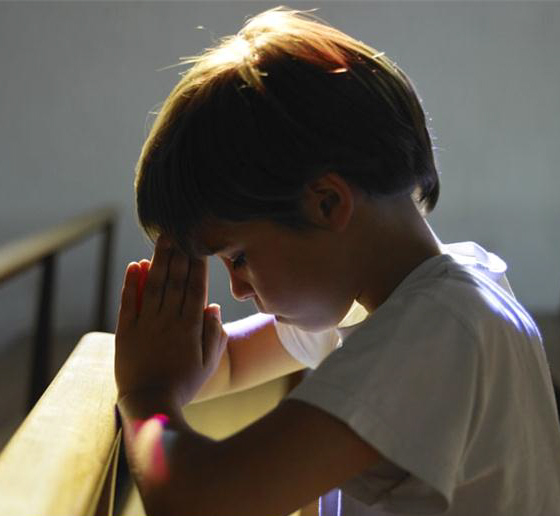The Nature of Reality
By Dr. Patti Amsden
Webster’s dictionary defines reality as real existence. To live in reality, a person, a nation, or an institution must discover the truth of what is real. Failure to discover reality equates to denying truth, embracing a lie, and living in fantasy.
Hardly would anyone contest with this axiom when applying the nature of reality to certain physical laws. For example, gravity is real. Deny the truth of gravity, live in the fantasy of that denial, and the end result will be the discovery of reality. Who could argue with such sound logic?
Although the nature of reality may seem unquestionable in the context of gravity, realness becomes shrouded with ambiguity when the discussion turns to philosophical questions. Are there absolutes in morality? Can law and justice have irrefutable tenets? Must opinions rest upon non-negotiable standards? How can we know? Perhaps that question of
how we know, or epistemology, is more critical and foundational than what we know.
A clue can be extrapolated from observing children. When seeking truth, young ones don’t ask ‘what’ to a rock, ‘how’ to a bee, or ‘why’ to a flowing stream. They ask mentors; they assume someone has authority to have knowledge and pass that information to them. They presuppose truth is knowable, obtainable, and valuable. Although children may occasionally seek to discover truth on their own, they don’t habitually discover reality autonomously. They submit to an authority and subjectively learn how life works.
The question arises: is there a time when truth is no longer acquired from an authoritative source? Does an inversion occur in adulthood? Is there a magic age or level of education when how man learns flows only from independent observation and internally generated knowledge? If this can and does occur, then each man ultimately becomes his own authoritative source of reality.
Such a view is riddled with contradiction and contention. One man’s reality will frequently oppose another’s, yet each must have claimant authority to define truth. When this occurs, men will either elect to dwell together tolerating opposing
views or they will war for the authority to define reality. If toleration is the choice, men abdicate any hope for discovery of definitive reality. If war is the choice, the man with the strongest arm will impose his view on the weaker. The scenario of each man defining reality for himself will create a world where truth is arbitrary, illusive, and adjusting.
The alternative to man-defined view of reality is reminiscent of the epistemology of childhood, which acknowledges that truth is defined from an external authoritative source. This view embraces the idea that someone is endowed with right to claim knowledge. This line of reasoning leads to the recognition of an all-knowing and sovereign Creator. In the last
analysis about the nature of reality, all men must choose between two theories: either man is the final authority about what is real existence or God is the ultimate standard of reality to avoid embracing a lie and living in fantasy.
Principle: There are absolute and objective principles that undergird the created order of matter, personal and social relationships, and the possibilities of sustainable freedom and prosperity within nations.
By Dr. Patti Amsden
Webster’s dictionary defines reality as real existence. To live in reality, a person, a nation, or an institution must discover the truth of what is real. Failure to discover reality equates to denying truth, embracing a lie, and living in fantasy.
Hardly would anyone contest with this axiom when applying the nature of reality to certain physical laws. For example, gravity is real. Deny the truth of gravity, live in the fantasy of that denial, and the end result will be the discovery of reality. Who could argue with such sound logic?
Although the nature of reality may seem unquestionable in the context of gravity, realness becomes shrouded with ambiguity when the discussion turns to philosophical questions. Are there absolutes in morality? Can law and justice have irrefutable tenets? Must opinions rest upon non-negotiable standards? How can we know? Perhaps that question of
how we know, or epistemology, is more critical and foundational than what we know.
A clue can be extrapolated from observing children. When seeking truth, young ones don’t ask ‘what’ to a rock, ‘how’ to a bee, or ‘why’ to a flowing stream. They ask mentors; they assume someone has authority to have knowledge and pass that information to them. They presuppose truth is knowable, obtainable, and valuable. Although children may occasionally seek to discover truth on their own, they don’t habitually discover reality autonomously. They submit to an authority and subjectively learn how life works.
The question arises: is there a time when truth is no longer acquired from an authoritative source? Does an inversion occur in adulthood? Is there a magic age or level of education when how man learns flows only from independent observation and internally generated knowledge? If this can and does occur, then each man ultimately becomes his own authoritative source of reality.
Such a view is riddled with contradiction and contention. One man’s reality will frequently oppose another’s, yet each must have claimant authority to define truth. When this occurs, men will either elect to dwell together tolerating opposing
views or they will war for the authority to define reality. If toleration is the choice, men abdicate any hope for discovery of definitive reality. If war is the choice, the man with the strongest arm will impose his view on the weaker. The scenario of each man defining reality for himself will create a world where truth is arbitrary, illusive, and adjusting.
The alternative to man-defined view of reality is reminiscent of the epistemology of childhood, which acknowledges that truth is defined from an external authoritative source. This view embraces the idea that someone is endowed with right to claim knowledge. This line of reasoning leads to the recognition of an all-knowing and sovereign Creator. In the last
analysis about the nature of reality, all men must choose between two theories: either man is the final authority about what is real existence or God is the ultimate standard of reality to avoid embracing a lie and living in fantasy.
Principle: There are absolute and objective principles that undergird the created order of matter, personal and social relationships, and the possibilities of sustainable freedom and prosperity within nations.


